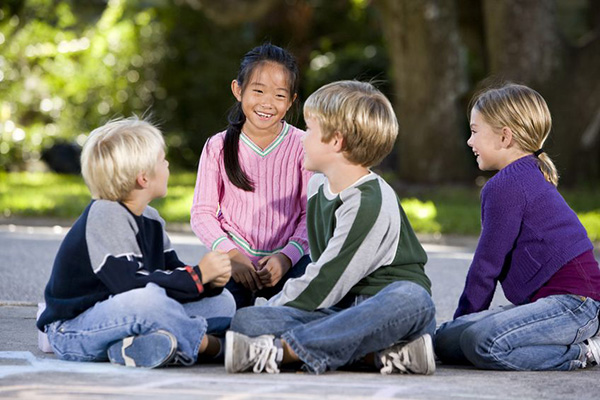
It might surprise you to know that some kids in two-parent homes have a lot in common with children of divorce. Even though this is a blog about kids and divorce, stay with me as I explain what I mean.
Among the children who participate in your church programs, some in two-parent homes display characteristics that may not make sense.
- They come inconsistently, even though both parents attend on a regular basis.
- Sometimes, some siblings are missing.
- The next week, the siblings who missed last week are there, but the other kids in the family are missing.
- They exhibit some of the same traits as kids in divorced homes:
1. They have difficulty paying attention.
2. They exhibit a lot of arguing, fighting, and disruptive behaviors.
3. They seem to be stressed out most of the time.
4. They argue with their siblings, but these arguments are almost lethal, not like normal brother-sister arguments.
5. Some are extremely angry.
6. Other kids in the family seem to be sad and depressed.
What these children need
- They need understanding of their unique situation.
- They desperately need for you to have empathy for them.
- They want to know you love them just the way they are.
- They need special consideration when it comes to discipline.
- They need to know their Heavenly Father will never leave them or forsake them.
- They need to know there are stories in the Bible where families were blended, and there were problems getting along with step-siblings.
- The kids need to know it is okay if they don’t really like their new step-siblings.
- They need to know it takes time to get to know someone and form new relationships.
- Some children might need training or lessons in how to form new relationships or live in a two-parent home.
- They need a lot of encouragement.
You might be surprised to learn that many children of divorce unofficially adopt the last name of the new dad. They will tell you that it is their new name, and some will even go so far as to sign all their papers at school with the new last name.
What they don’t need
- They don’t need to be told how blessed they are to be living in two-parent homes.
- They don’t need punitive discipline.
- They don’t need to be told, “You have a new dad (or mom), and you must love and respect him (or her).” It’s hard to love and respect someone you don’t know.
While these children may live in actual two-parent homes, it is not the original, two-parent homes they were born into. It is a new kind of home and a new normal, and it takes time and a lot of effort on the part of everyone involved.
Here are some excellent resources for stepfamilies and blending families:
Moe and Paige Becnel–
Blending A Family Ministry
Ron Deal–
Smart Step Families
Gordon and Carri Taylor
– Designing Dynamic Stepfamilies
Tom and Helen Wheeler–
Changing Families
What has been your experience ministering to children of divorce in a two-parent home?
This article is updated and adapted from an article originally published on the Kids & Divorce blog on July 14, 2014.
DC4K blogs posts are great to use for training children’s leaders and volunteers and they are free. Subscribe to the DC4K blog here.
Want to learn more about how to start a DivorceCare for Kids group for the hurting children in your community? Click here.
Did you know DC4K blog articles are on Pinterest? Divorce & Kids, Children’s Pastors, Single Parents, etc. It’s all there. Check it out here
Follow Linda on Twitter, dc4klinda










As prevalent as divorce is , I wish more people understood this. My son has all of the traits listed above, they dont just get over it and move on as adults seem to do.
Thanks Dawn for your comment. You are spot on with your observation of your son.
Pingback: DC4K » How to help the child of divorce when families blend
Pingback: How to Help the Child of Divorce When Families Blend | KidzMatter